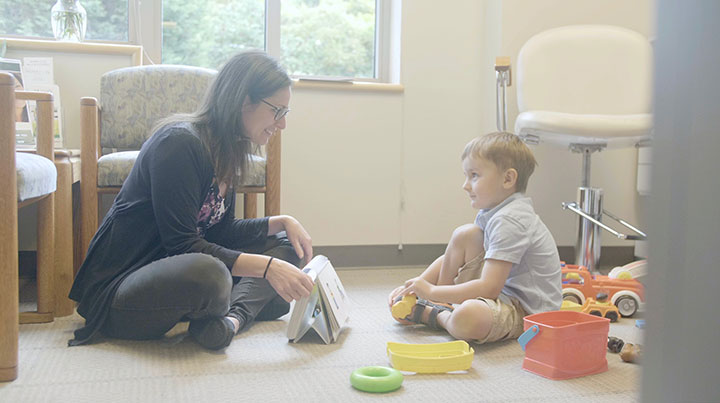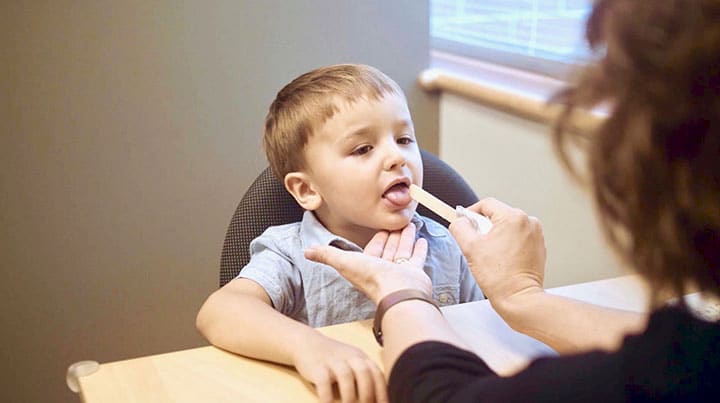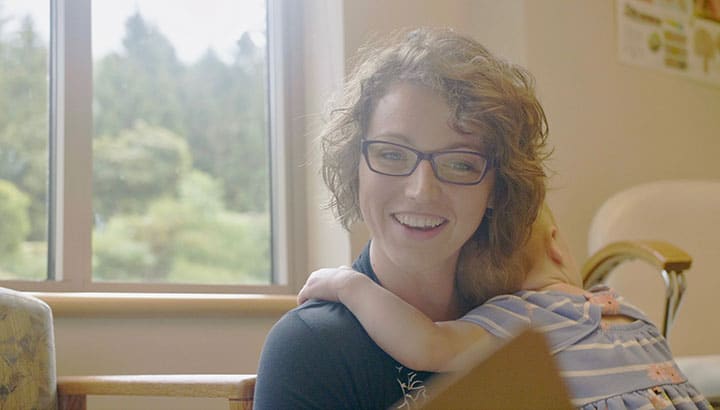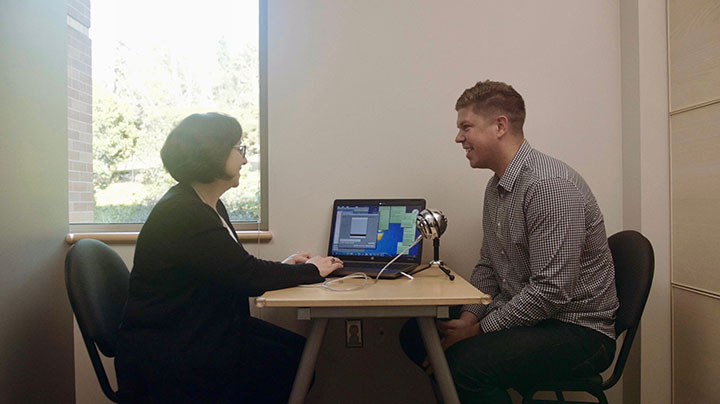
Speech Sound Disorders
Speech sound disorders occur when a person has difficulty producing speech sounds, affecting their speech clarity and communication.
There are different types of speech sound disorder in children; articulation disorder (sounds may be substituted, omitted, added or distorted), phonological disorders (involves patterns of sound errors that effect a group of sounds), Childhood Apraxia of Speech (involves difficulty with planning and organizing a sequence of movements for speech), and Dysarthria (involves muscle tone and motor coordination difficulty).
Speech disorders in adults can result from residual articulation problems that did not resolve in childhood or have an adult onset due to pathologies such as brain injury, stroke, Parkinson’s disease, etc.

Language Disorders
A language disorder occurs when a person has trouble understanding others or sharing their own thoughts, ideas and feelings. A language disorder can occur as a delay during childhood development, or it can occur after illness or injury (e.g. head trauma or stroke). A Language Disorder in early childhood may present as:
- Talking later than expected
- Difficulty producing (e.g., finding the right words to say, using made-up words)
- Difficulty understanding language (misunderstanding others when they speak, misinterpreting what is said)
- Problems with reading and writing

Fluency Disorders
A Fluency Disorder (e.g., stuttering/stammering or cluttering) is a disruption to the functional flow of speech. Stuttering can be characterized by frequent repetitions of speech sounds, syllables, words and/or phrases, prolongations of speech sounds, and blocks (feeling that a sound is “stuck”). A person who stutters may or may not show other behaviors such as blinking, head jerks, hand movements, etc., that further disrupt the natural flow of speech.

Social-Pragmatic Disorders
A Social Pragmatic Language Disorder is a breakdown of the inherent understanding of underlying thoughts, beliefs, intentions, and emotional states of others. Social pragmatics is a domain of language that relates to one’s ability to think about and interact with others within and across social situations. This goes deeper than rote teaching of “social skills” or “social norms” because social situations and expectations are not black-and-white (i.e. you would speak to your friend differently than you would speak to your teacher or boss).

Voice Disorders
A Voice Disorder is defined by persistent voice changes that impact an individual’s ability to communicate effectively. Voice Disorders may affect one’s vocal loudness, quality, and/or pitch. Individuals with Voice Disorders may also experience pain or strain with voicing. Voice disorders can arise after illness or injury, ongoing or acute misuse of the voice, or as a symptom of neurological conditions. Other related disorders include chronic cough, irritable larynx syndrome, and paradoxical vocal fold motion (also known as Vocal Cord Dysfunction).